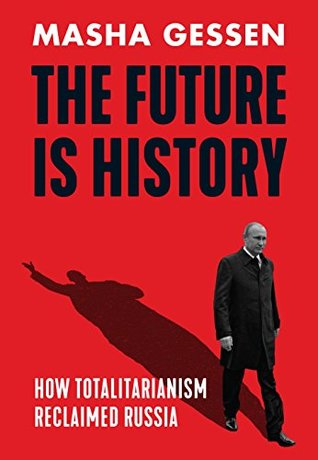More on this book
Community
Kindle Notes & Highlights
by
Masha Gessen
Read between
December 25 - December 29, 2017
The Marxist principle of “from each according to his ability, to each according to his need” was replaced with the more pragmatic approach of paying what the state could pay for extracting the maximum from those with high ability.
The Bolsheviks placed a premium on the “creative intelligentsia,” as it was termed—writers, artists, and, especially, filmmakers—as well as scholars and scientists. Military officers ranked even higher. But most of all, the Bolsheviks valued themselves: privileges and benefits for “political workers” exceeded those of all other groups.
Its narrator, an ordinary Soviet citizen, encounters the fences that surround the Communist leaders’ estates and begins to fantasize about what the fences conceal: fresh, untrampled grass, clean air, hard-to-find chocolate-mint candy, birds of different kinds, shish kebab consumed in the security of knowing the fence is guarded, and at night, to top it all off, “they show films about whores.” The narrator cannot take it anymore, heads back to the city, and the whole way back, he is subjected to a lecture extolling Soviet egalitarianism, broadcast over the train’s radio system. He thinks of the
...more
On weekends, a black government Volga—the top model among Soviet-made cars—equipped with flashing lights that entitled it to ignore traffic regulations carried Seryozha’s family out of the city.
Lyosha understood that the fact that these words did not apply to his and Galina’s world was a function of privilege.
The first political party in the Soviet Union that was not the Communist Party would be called Demokraticheskiy Soyuz, the Democratic Union.5
After decades of amorphousness underground, Pamyat had acquired a charismatic leader, a former photographer named Dmitry Vasilyev, who railed against all the world at once: the Holocaust was a Jewish conspiracy (Eichmann was a Jew); rock music was a Satanist plot (slowed-down vinyl records sounded out chants to Satan); and yoga was a Western scourge (all the West wanted to do was contaminate Russian culture).10
28 Robbed of his individuality and therefore the ability to interact meaningfully with others, she wrote, man became profoundly lonely, which made him the perfect creature and subject of the totalitarian state.29
Little Octobrists are future Young Pioneers. Little Octobrists are studious kids. They study hard, love school, and respect their elders. Little Octobrists are honest and truthful kids. Little Octobrists are fun-loving kids. They read and they draw, they play and they sing, and they stick together. Only those who work hard and persist earn the right to be called Little Octobrist.2
Masha also learned that another top Bolshevik, Sergei Kirov, was orphaned at an early age and spent part of his childhood in an orphanage. She did not learn that Kirov was assassinated in 1934 and that his death served as the pretext for one of the deadliest waves of Stalinist terror.
After he himself was executed, subscribers to the Great Soviet Encyclopedia received a letter that Maya was now showing her: The state scholarly publishing house of the Great Soviet Encyclopedia recommends that pages 21, 22, 23, and 24, as well as the portrait bound in between pages 22 and 23, be removed and replaced with new pages, enclosed with this letter. Use scissors or a razor blade to remove the above-mentioned pages, taking care to retain inner margins to which new pages are to be glued.
“Do you know why your feet are so adorable?” he asks her. “I do,” she responds. “It is because our Soviet regime is so wonderful.”


